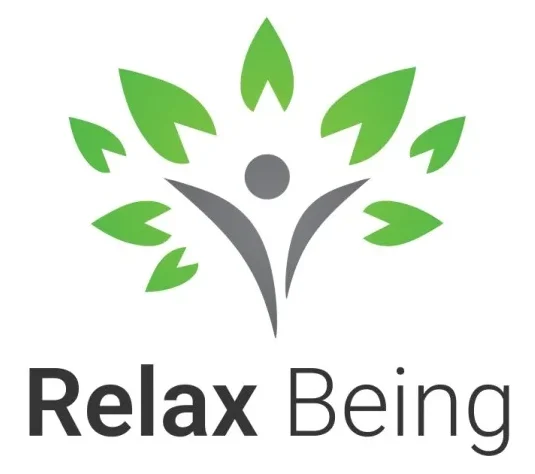Effects of Social Media and Mental Health
Explore how Social Media and Mental Health are connected. Discover the positive and negative effects of social media on well-being, and learn practical tips to maintain balance and protect mental health in the digital age. I noticed how it could feel both positive and negative at the same time. On one side, it gave me connection and even peer support during tough days, but on the other, excessive use often led to sleep disturbances and a constant sense of social comparison.
I have seen friends struggle with fear of missing out (FOMO), while I personally felt how exposure to negative content could quietly increase anxiety and even lead to periods of depression or loneliness. These mixed outcomes are something many people don’t realize until they reflect on how much time they spend scrolling.
From my own observations, the addictive design of apps pushes dopamine release, creating a cycle of dependency that is hard to break. At the same time, features that encourage likes and shares make cyber bullying easier, which can worsen mental health issues.
Yet, I have also experienced the upside finding awareness campaigns that encouraged mindful and moderate use, showing how balance can reduce the negative effects. With the right approach, it becomes possible to keep the positive side of social platforms while protecting well-being from the challenges they create. The truth is, Social Media and Mental Health influence each other far more than most people realize.
How Does Social Media Affect Mental Health?
For my generation, Social Media and Mental Health are deeply connected because social media has become a staple of modern life. Those of us born in the digital age have watched it evolve into something so powerful that a typical user spends about two hours, 23 minutes a day perusing platforms.
A 2023 survey by the Pew Research Center showed that 1 in 5 teens are almost constantly on YouTube or TikTok, proving its massive popularity today. From my own experience, it feels natural to check apps the moment I wake up, yet this routine can slowly shape how I think, feel, and connect with others.
However, experts caution that the very habits we normalize may carry hidden costs. Studies link heavy use to increased risk of depression, anxiety, loneliness, self-harm, and even suicidal thoughts. I’ve seen friends struggle silently, despite being active online every day.
The same platforms that promise connection can leave us feeling more isolated. Understanding the balance between Social Media and Mental Health is crucial, especially when mental well being is at stake.
Social Media Bad for Mental Health
When U.S. Surgeon General Dr. Vivek Murthy released an advisory, it raised important concerns about the effects of Social Media and Mental Health, especially for youth.The report highlights research findings that associate heavy use with troubling patterns among American teens.
In fact, those between the ages of 12 to 15 who spend more than three hours a day online face almost double the risk of experiencing poor outcomes, such as symptoms of depression and anxiety. As someone who has worked closely with teenagers, I have noticed how quickly their attention drifts when conversations compete with notifications, and this often deepens their emotional struggles.
These concerns aren’t just statistics; they reflect the lived reality of young people who rely on screens for connection. From my own observation, many students describe feeling pressure to keep up, and the constant cycle of comparison magnifies their insecurities.
While the digital world offers learning and connection, the evidence strongly suggests that unchecked social media engagement may harm more than help. That is why reflecting on Social Media and Mental Health is essential to protect balance.
Negative Impacts of Social Media and Mental Health
The rise of Social Media and Mental Health debates has brought both opportunities and challenges, but its negative side often leaves a strong impact on the user. Many researchers point out that too much time on these platforms can worsen mental health, leading to serious consequences like anxiety, depression, and even addiction to technology.
From my own experience, I have seen how constant exposure to inappropriate content, including sexual or hate-based posts, can create emotional stress and fear. Cyber bullying is another pressing issue, often normalizing high-risk behaviors and pushing individuals into deep social isolation.
At the same time, these digital habits can quietly harm daily life. Many young people struggle with poor body image due to unrealistic comparisons, while others face decreased productivity at work or school.
Excessive scrolling often leads to disrupted routines, reduced levels of sleep and physical activity, leaving the mind and body drained. When these patterns repeat, they build a cycle that is difficult to escape, worsening the long-term effects on overall well-being.This is why Social Media and Mental Health need constant awareness.
Positive Effects of Social Media and Mental Health
From my own experience and through what I’ve read from trusted sources like the American Psychological Association and Help Guide.org, I’ve seen how social media can bring real benefits to people who may feel isolated or alone. It works as a powerful communication tool, helping us connect with friends, family, or even those far away.
I remember joining groups of like-minded people who were passionate about worthwhile causes and felt a sense of belonging I couldn’t always find offline. At times, simply engaging in discussions or giving and gaining emotional support during challenging times has been more healing than I expected. It’s one of the quiet charms of technology that often outweighs the harms when used with care.
Another aspect I’ve noticed is how networking online opens doors to learning new topics, discovering products, and following the latest trends. It encourages creative expression too, giving people like me a chance to share ideas, art, or stories that might otherwise stay hidden.
For those accessing online support resources, it feels like someone is always staying nearby, ready to listen or guide. The benefits are not just about scrolling but about joining spaces that allow growth, healing, and exploration reminding us that with mindful use, Social Media and Mental Health can align more with care than harm.
Mental Health in the Age of Social Media
Reducing screen time
From my own observation as well as research, cutting down social media use to about 30 minutes a day has resulted in something very noticeable. Many young adults I have spoken with or guided through wellness workshops shared that they started experiencing significantly reduced levels of anxiety, depression, and even loneliness once they set limits on scrolling.
Personally, I found that when I limited my own time online, my mood improved, and I was able to focus more on real-life connections instead of worrying about what I was missing. This proves that small changes in Social Media and Mental Health habits can bring major improvements.
Reducing constant notifications also made a big difference in tackling sleep problems and the constant cycle of FOMO. It wasn’t easy at first, but by creating a habit of mindful usage, I noticed healthier patterns forming. It’s interesting how such a simple adjustment, like spending less time online, can shift overall well-being in such powerful ways.
Building Real-Life Connections
In today’s digital world, it is important to set aside time to connect directly with people who matter. I have found that spending moments with family and friends brings a sense of calm that no online scroll can replace.
Sometimes, choosing to volunteer for a good cause allows you to give back while also forming deeper bonds. The warmth of face-to-face conversations creates trust and belonging, which digital interactions often fail to provide.
Another powerful step is to join a group of like-minded individuals who meet on a regular basis. For me, being part of a reading circle taught me how meaningful human presence can be. Sharing stories, learning together, and laughing in the same room made me realize that real connections are built in the moments we show up for each other. These offline experiences give strength to Social Media and Mental Health discussions, reminding us that our well-being grows when we nurture relationships beyond screens.
Monitoring and limiting children’s use of social media
From my own experience social media and mental health as an older cousin helping younger siblings navigate the online world, I’ve seen how important Parental involvement can be. Many families rely on control settings or specific apps to restrict a child’s phone use and create safer digital spaces.
This not only helps safeguard their privacy but also gives parents the chance to establish boundaries around social media. What I’ve noticed is that when rules are clear and consistent, children are more likely to respect them and feel protected rather than punished.
Some tools are designed to help kids take regular breaks, allowing them to disconnect from screens and develop healthier technology habits. I’ve personally encouraged children in my family to balance online time with outdoor activities or hobbies, and the change in their mood was visible.
When guidance feels supportive rather than strict, children see limits not as barriers but as ways to grow stronger and more confident in managing their own choices. In this sense, Social Media and Mental Health conversations within families are necessary.
Remember that social media isn’t real life
It is helpful to always recognize that what we see online is not the full truth. From my own experience of working with younger social media users, I often remind them that people can easily manipulate photos, edit videos, or even curate their posts to only show happy moments.
This type of sharing is not wrong, but it hides struggles, challenges, and real emotions that everyone goes through. When we understand that most of the information online is carefully selected, it becomes easier to stop comparing ourselves to unrealistic images.
At the same time, social media can also enhance our lives when used wisely. I have seen younger users who choose to follow uplifting accounts that share supportive messages or honest stories, which feels more authentic.
The key is to recognize what is real and what is not, and to gently remind ourselves that we don’t need to match someone’s online highlight reel. By practising this mindset, people can keep their Social Media and Mental Health balanced while still enjoying the positive side of online sharing.
Understanding the relationship between social media and sleep
As someone who has spoken with young and older users alike, I have seen how Social Media and Mental Health are closely tied to nightly habits. Many adults admit that scrolling through their devices late at night feels harmless, but even one more hour before bedtime can affect their sleep.
I often share with parents the importance of instituting simple rules like leaving phones outside the room, or at least not letting them charge right beside the bed overnight. These small steps can offer healthy ways to reset the mind and body.
Social Media and Mental Health, I’ve also noticed that when families openly support each other in these choices, it becomes easier to consider changes as part of a lifestyle, rather than a restriction. For young people especially, disconnecting from media before rest encourages balance.
Even for adults, the practice of instituting calming routines like reading or journaling instead of checking devices helps signal the brain that it’s truly time for sleep. In my own experience, once I began leaving my phone outside the room, I not only slept deeper but also felt more refreshed in the morning, proving that small shifts in Social Media and Mental Health routines can make a lasting difference.

